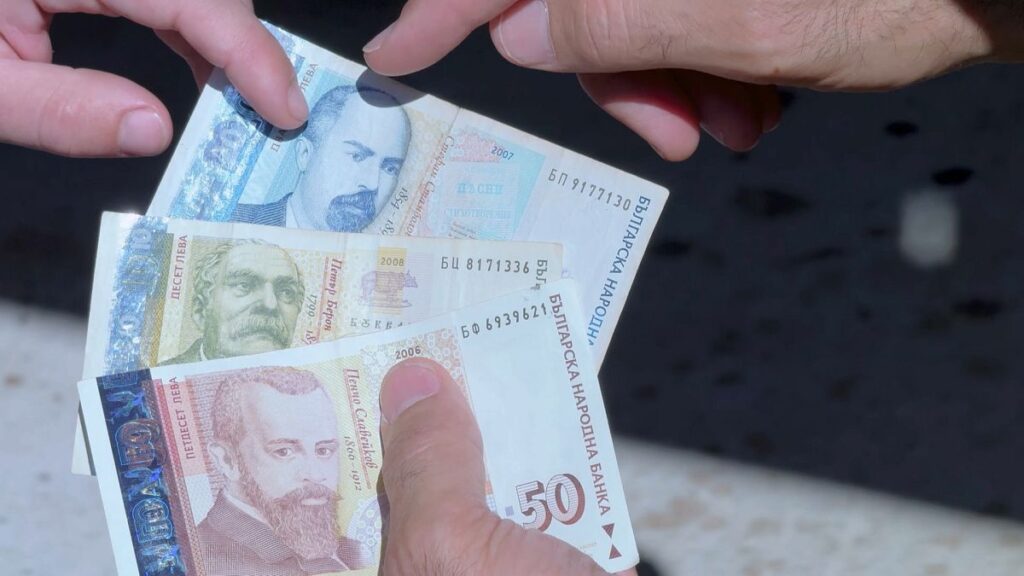The days of the Bulgarian lev are numbered! Bulgaria wants to introduce the European single currency, the euro, in January. The reform efforts are paying off:
The European Commission, central bank and EU finance ministers have given the green light.
Bulgaria meets all the conditions for the euro:
- Consumer prices are rising only slowly
- The budget deficit is low
- Public debt is one of the lowest in Europe
- Long-term interest rates are stable
Nevertheless, many Bulgarians are afraid of inflation – even though the euro is one of the most stable currencies in the world. 66 percent believe that Bulgaria is not yet ready. Bulgarian ultra-nationalists and supporters of Russia organise demonstrations against the euro. Society is divided. All EU institutions confirm the opposite: Bulgaria has done its homework and is ready.
Are there more advantages or disadvantages associated with switching to euros? First stop for Bulgarian winegrowers. Wine has been cultivated in the region for thousands of years. Ivailo Antonov is managing director of the Bessa Valley winery. Despite summer temperatures of 40 degrees, his vines are thriving: “We plant Syrah. We expect a really good harvest this year.”
The company produces 720,000 bottles of wine annually, 80 percent of which is for export. Juggling currencies costs money: “We sell abroad and are paid in euros,” says Antonov. “But when we buy material in Bulgaria, we pay with levs. So we give a lot of money to the bank to transfer money from euro to lev and vice versa.” The introduction of the euro eliminates transaction costs, and Bulgaria’s entrepreneurs save money.
Change of location: In the village of Doganovo I meet Vasil Petrov. At the age of 14, he learned to catch and prepare carp. He also knows his way around accounting. He has been working in the restaurant at the fish pond for seven years. He believes that the euro will become expensive: “Prices will go up, salaries won’t. That scares me.”
Bulgarian society is divided into supporters and opponents of the euro. Right-wing populists stoke fears of inflation and organise large-scale demonstrations. With people like Vasil, scaremongering works: “I don’t have a good feeling about giving up the lev, because the banknotes show Bulgarian celebrities. I am afraid to give up a piece of national identity, because we Bulgarians are very nationalistic. We have over 3000 years of history. People are afraid, because we feel that Europe is devouring us.”
Back to Bessa Valley. Winemaker Antonov disagrees with the point of view of fish chef Vasil. Money has nothing to do with national identity, he says. And: “The euro is the second most important currency in the world. I think we should be proud of that!”
In the Bulgarian capital Sofia, I meet Plamen Ralchev. At the University of World Economy, he heads the Department of International Relations. He supports Bulgaria’s decision to adopt the euro: “Bulgaria has committed itself to adopting the euro under the conditions set out in the EU Accession Treaty. So the question is not whether to do that, but when.”
Euronews: “When is the best time? 66 percent of Bulgarians say: Our country is not yet ready!”
Ralchev: “A few years ago, the Bulgarian economy was in better shape. We have lost momentum due to political instability and the inability to form a stable government.”
Euronews: “Should Bulgaria wait a few more years?”
Ralchev: “I do not recommend waiting. We don’t know what the economic environment will look like in 2 or 3 years. It could get worse! – The problem is that the pro-European sentiment in Bulgaria is not solid enough.”
Euronews: “Every second Bulgarian says: No! We don’t want that! – Why?”
Ralchev: “Some (Bulgarians) see themselves as Europeans, others think they are a very unique Balkan people. We have deep-seated psychological complexes: Where are we? Where should the journey go, as a nation? And then there’s Russia: This rift running through Bulgarian society between pro-Russian and anti-Russian layers is deeply disturbing.”
Euronews: “Does the euro lead to inflation?”
Ralchev: “This is psychological manipulation: Things are getting worse! Prices are exploding! – I expect prices to fall after the introduction of the euro. The market logic will make it clear to traders that they must lower their euro prices if they want to remain competitive in the market.”
Euronews: “Why would Bulgaria adopt the euro? What is the advantage – for Bulgaria?”
Ralchev: “The euro is a stability anchor, a lifeboat that we should board.”
Read the full article here

